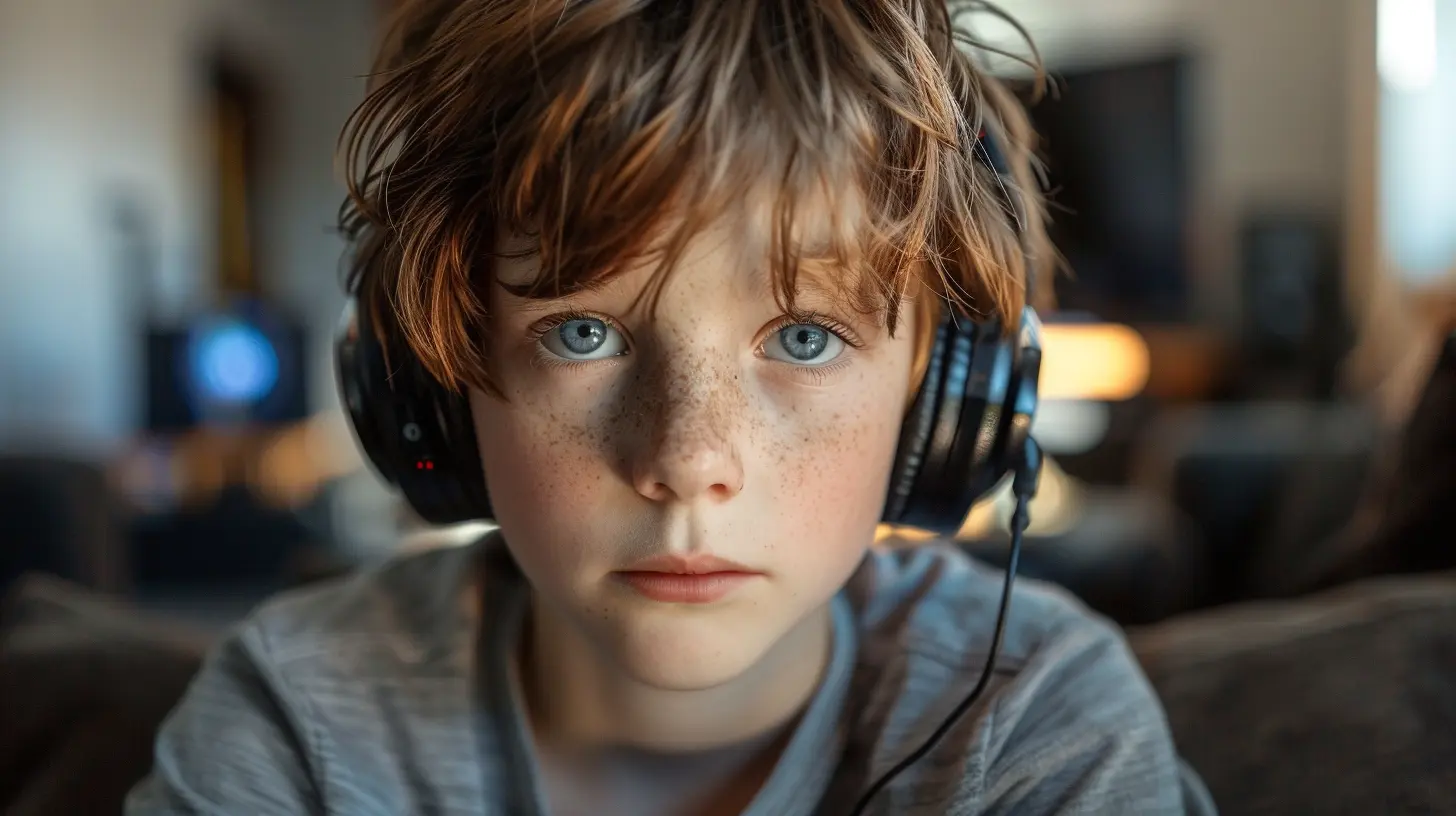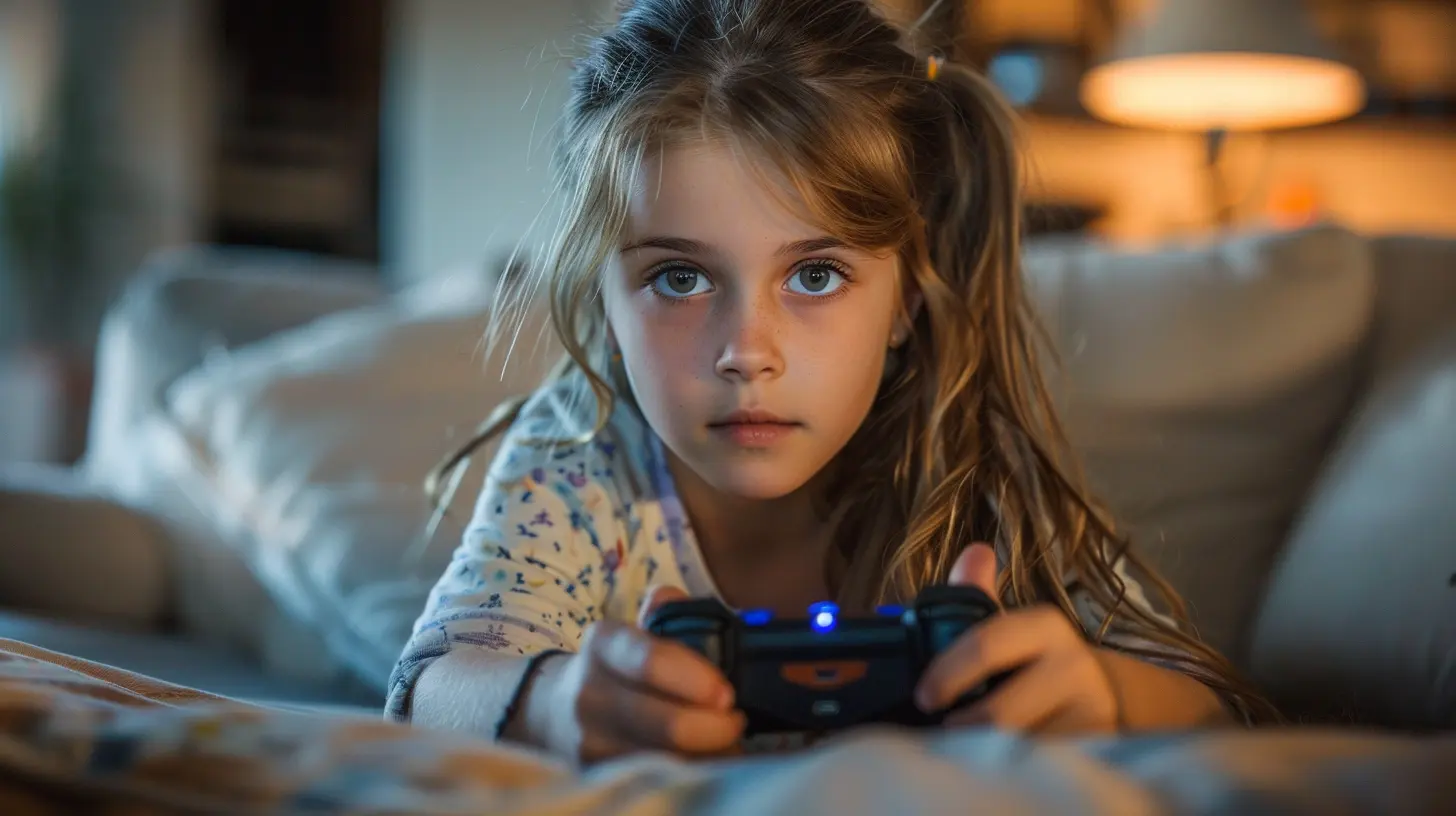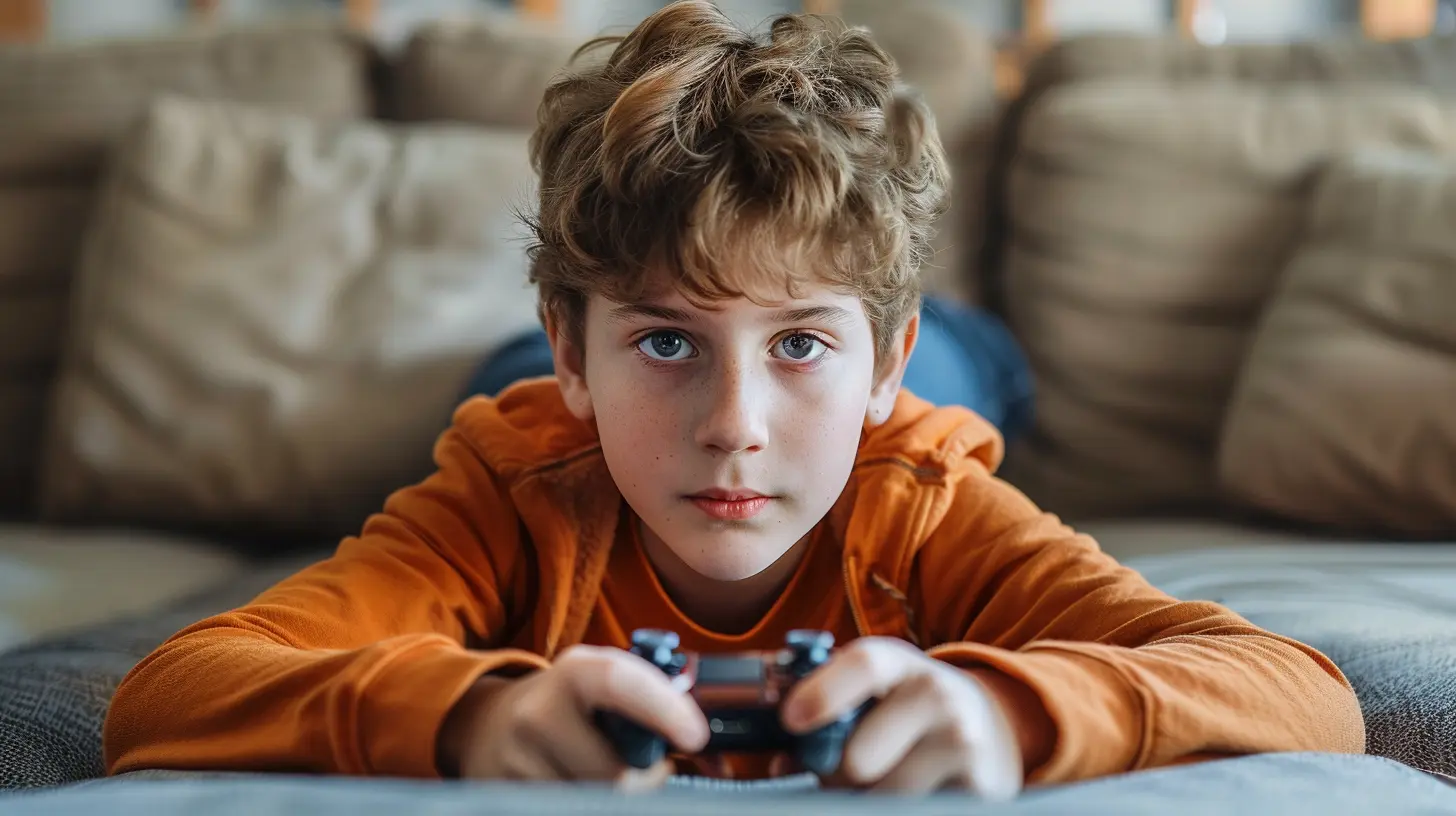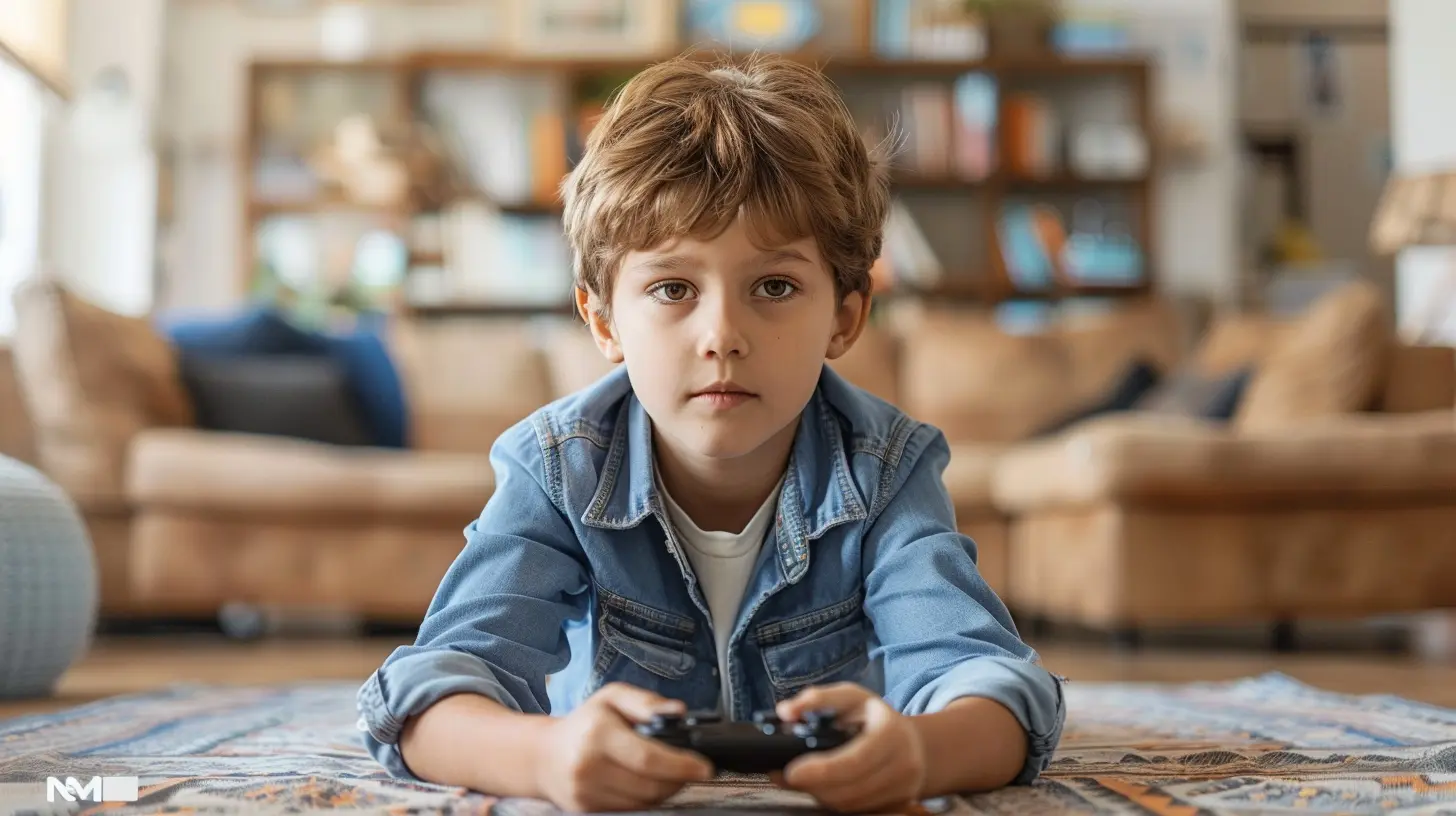Games That Help Kids Cope with Stress and Anxiety
18 November 2025
Let’s face it — childhood can be tough. Sure, kids don’t have to worry about paying bills or sitting in traffic, but they deal with their own kind of stress. Whether it's school pressure, social anxieties, or just navigating the messiness of growing up, stress can take a real toll on kids. And guess what? Games — yes, the thing they beg to play all day — can actually help.
We're not talking about just any games, though. We're diving deep into games that are specifically created or uniquely effective at helping kids manage their stress and anxiety. The ones that calm the mind, engage creativity, build confidence, and sometimes even teach mindfulness — all without your kid ever realizing they're doing something healthy.
Let’s break it down.
Why Do Kids Get Stressed Anyway?
Before we dive into the games, let’s talk about what’s going on in those little brains.Kids feel stress just like adults do. But here’s the kicker — they don’t always have the tools or vocabulary to talk about it. A bad day can feel like the end of the world. A tough math test? Absolute chaos. Friend drama? Total meltdown. If you’ve watched a 7-year-old cry over a lost Minecraft world, you know what I mean.
Stress in childhood isn't just “kid stuff” — it can snowball into bigger issues if left unchecked. That’s why giving them outlets, like therapeutic or calming games, can make a huge difference.
The Power of Play: Why Games Work
Ever notice how playing a game helps you escape for a bit? It works the same way for kids. Games provide:- Distraction: They shift focus from the stressor to something engaging.
- Control: In games, kids get to make decisions. It empowers them.
- Achievement: Completing tasks builds confidence.
- Creativity: Many stress-relieving games are open-ended and let kids express themselves.
- Routine: A familiar game can provide a calming routine during chaotic times.
Let’s check out the best of the best.
1. Minecraft (Creative Mode)
Platform: PC, Xbox, PS, Mobile, Nintendo SwitchWe can’t make a list like this without talking about Minecraft. This pixelated wonderland is basically digital Lego — and kids LOVE it.
In Creative Mode, there are no mobs trying to kill you, no time limits, and no pressure. Just you, a blank world, and infinite blocks. Kids can build whatever they want: castles, treehouses, even roller coasters. And in doing so, they’re relaxing, zoning in, and letting the stress melt away.
Why it helps:
- Encourages focus and creativity
- Creates a sense of mastery and control
- Relaxing background music and simple gameplay loop
2. Animal Crossing: New Horizons
Platform: Nintendo SwitchThis game is like a warm hug in video game form. You move to a peaceful island with talking animal villagers, you decorate your house, go fishing, water your flowers... basically, it's friendliness turned into a game.
Why it works for stress:
- Slow-paced, no pressure
- Adorable visuals and soothing music
- Focuses on routine and gentle tasks
- Social elements without real-life pressure
It’s perfect for kids who need something calming after a tough school day.
3. Monument Valley
Platform: iOS, Android, PCThis one’s a bit artsy, but it’s mesmerizing. Think of it like an interactive dream. Monument Valley is a puzzle game where you move through impossible geometric structures that are both beautiful and mentally engaging.
Why it’s anxiety-friendly:
- Calming audio and visuals
- No timers, no failure — just gentle exploration
- Stimulates problem-solving without stress
- Short levels for easy stop-and-start play
4. Flow Free
Platform: iOS, AndroidThis is a simple puzzle game where kids connect colored dots on a grid, making pretty flowing patterns. It’s super satisfying — kind of like popping bubble wrap.
Why kids love it for stress relief:
- Instant feedback and progress
- Visual satisfaction
- Easy to learn, hard to master — keeps them focused and calm
- No loud noises or fast motion
Great for those moments when you need a quick chill-out session.
5. Toca Boca Series
Platform: iOS, AndroidThese apps are a godsend for younger kids. Whether it’s Toca Life World, Toca Hair Salon, or Toca Kitchen, every app is playful, creative, and 100% stress-free.
Why it reduces anxiety:
- Open-ended play, no objectives
- Safe environment with silly, non-threatening characters
- Encourages storytelling and role-playing
- Lets kids play out emotions in a healthy way
Especially helpful for younger children who aren’t ready to talk about their feelings yet.
6. Stardew Valley
Platform: PC, Switch, Xbox, PlayStation, MobileYou’re a farmer. That’s it. You plant crops, chat with villagers, raise chickens, and maybe even fall in love with a pixel soulmate. It’s kind of like if therapy grew on a farm.
Why it helps with stress:
- Peaceful nature setting
- Rewarding daily tasks
- Builds routines that help with emotional regulation
- The world is always forgiving and kind
- No pressure to “win” — just live
For older kids (tweens and teens), this one is pure gold.
7. Journey
Platform: PlayStation, PCOkay, this one might seem abstract at first — it’s a game where you... walk across a desert? But the whole experience is emotional, quiet, and breathtaking.
Why it calms anxiety:
- Simple controls, no dialogue
- Emotional storytelling through visuals and music
- Encourages reflection
- Rare multiplayer element where players help each other silently
It teaches connection and empathy without a single word. Pretty powerful.
8. Headspace for Kids (App Game Elements)
Platform: iOS, AndroidOkay, not a “game” in the traditional sense, but hear me out.
Headspace offers guided meditation and mindfulness activities for kids. But they’ve gamified it in clever ways — with progress charts, fun animations, and interactive lessons that feel more like play than “calm down time.”
Why it’s amazing:
- Teaches kids vital coping skills
- Interactive, not preachy
- Tailored for different age groups
- Use it daily, like brushing teeth (but for the brain)
Perfect if your kid worries a lot or has trouble sleeping.
9. Kind Words (lo fi chill beats to write to)
Platform: PC (Steam)Now this is a hidden gem. It’s a calm, writing-based game where players send and receive encouraging messages — anonymously. Kind of like passing notes in class — except these are always positive.
Why it’s brilliant for anxiety:
- Promotes kindness and empathy
- Healing through writing and reading support
- Calming lo-fi music
- No time limits or score — just good vibes
For older kids who might be anxious or feeling lonely, this is a peaceful digital community.
10. Art and Coloring Apps (like Pigment or Happy Color)
Platform: iOS, AndroidDigital coloring books are legit therapy. With beautiful illustrations and soothing sounds, they offer a peaceful experience where kids can just... color. That’s it.
Why it rocks:
- Low commitment, high satisfaction
- Improves focus
- Easy to pick up and put down
- Calms the nervous system with repetitive motions
Good for winding down before bedtime or during a “meltdown moment”.
So, Are Video Games the New Therapy?
Not exactly — therapy’s still awesome and super important. But games can be an incredible tool in the mental health toolbox.They’re not a replacement for real-world solutions like talking, therapy, or good sleep. But they are a bridge. A calming ritual. A safe space when everything else feels like too much.
When chosen wisely, games can help kids feel in control, understood, creative, and safe — and that’s just good parenting.
Tips for Parents: Making Game Time Helpful, Not Harmful
Let’s be real — not every game is stress-busting. Some can add to the chaos (looking at you, Fortnite). Here’s how you can make game time more calming:- Set boundaries — No infinite game marathons. Structure is calming.
- Play together — It builds connection and gives you a glimpse into their world.
- Talk about the game — Ask, “What do you love about this?”
- Observe behavior — If a game is causing more stress, ditch it.
- Balance screen time — Mix games with other stress-relievers like music, drawing, or just talking.
Final Thoughts: Play Isn’t Just Play
Let’s cut through the noise for a second. Games are powerful. They’re not just distractions. They’re tools, escapes, safe zones, and sometimes, even teachers.For a stressed-out kid, the right game can be the difference between a meltdown and a breakthrough.
So next time your child boots up Minecraft or Animal Crossing, don’t roll your eyes. Take a minute. Watch. Ask questions. Play with them.
You might just see therapy in action.
all images in this post were generated using AI tools
Category:
Games For KidsAuthor:

Emery Larsen
Discussion
rate this article
1 comments
Amanda McDonald
This article insightfully highlights the therapeutic potential of games in fostering resilience among children. By providing engaging environments to navigate challenges, these games not only enhance emotional regulation but also promote social connections and coping strategies.
November 19, 2025 at 4:54 AM

Emery Larsen
Thank you for your insightful comment! I'm glad you found the article highlights the valuable role games can play in building resilience in children.


